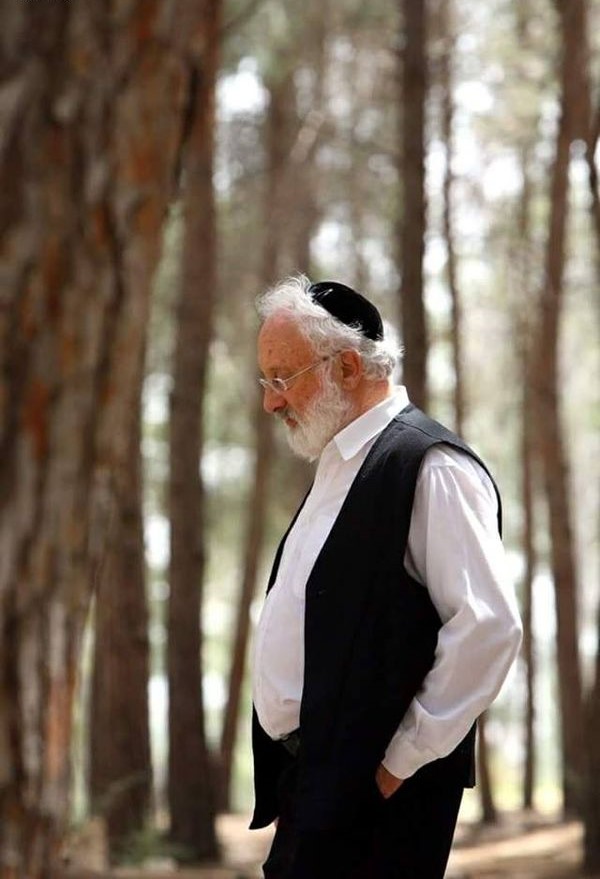WEDNESDAY PRAYER: HESED-MAIN READING FOR THIS WEEK – FOR MITZVOT – Love for the Creator and Love for the Created Beings

READING: SUNSET TUESDAY
Main Reading for KABBALISTIC PRAYER this week, today with THE READING FOR MITZVOT.
ARVUT OF: Sheridan Moreton-Judd.

Love for the Creator and Love for the Created Beings
-Rabbi Michael Laitman, PhD
To “Love thy neighbor as thyself,”
is the general law of the universe.
The General and the Particular
This statement is one of the most famous and quoted utterances. Oftentimes it is rephrased into another expression: “Anything that you hate, do not do to your friend.” Although this phrase is well known, let us find out if we interpret its meaning correctly.
The word “general” points at the sum of particulars, which in their combination form this “general.” In this case the law, “Love thy neighbor as thyself,” indicates that correction of man’s six hundred and twelve egotistical properties make up the property, “Love thy neighbor as thyself.”
It is difficult to understand how this precept can be “general” for all the corrections that the Divine Providence obliges us to complete by sending us sufferings.
Perhaps this property can serve as a “general” instruction pertaining to the person’s attitude to society. But how does the property, “Love thy neighbor as thyself,” determine the person’s attitude to the Creator?
From the wisdom of Kabbalah, which is a method of man’s correction and elevation to the level of the Creator, it is clear that the purpose of this science is to lead us to a state when we will be able to fulfill the commandment, “Love thy neighbor as thyself.”
While pointing at the precept, “Love thy neighbor as thyself,” Kabbalah wishes to say that the entire universe was created according to this law, and only our world is functioning in accordance with the opposite property of “love for oneself.” If man in this world wishes to exist in harmony with the general law of the universe, he is bound to change and adapt himself to it. The cause of all suffering in the world lies in our opposition to this general law.
At the outset we need to understand what the phrase “as thyself” means. The literal meaning is to love your fellow creature exactly as much as you love yourself. But in this case, the instruction is totally unrealizable.
Even if the statement read: “Love your neighbor as he loves you,” very few people would be able to fulfill it in full measure. It would nevertheless be acceptable. But it is utterly impossible to love your neighbor as yourself!
Even if there were no one else in the world, except for your friend, it would still be impossible to say nothing about the world teeming with people. Provided the person begins to love everyone as he loves himself, he will have no time at all for himself. Yet in his love for himself, he satisfied his own needs constantly, completely and willingly.
However, the person has neither desire nor sufficient reason to satisfy the needs of society. Even if he had such a desire, he would find it impossible to implement the literal meaning of the instruction, “Love thy neighbor as thyself.” So how then does the Divine Providence, the general laws of the universe, oblige people to do the impossible?
Yet one cannot possibly think that the statement exaggerates. Moreover, they said that man should put the needs of his friend before his own.
One Correction
There is only one practical correction with regard to the society, but it leads to cohesion with the Creator.
However, why could not the Creator initially create us in that exalted state and spare us the burden of corrections?
It is impossible to enjoy the unearned fruits of the labor due to the lack of aspiration for them, which is the Creator’s greatness. We can attain this greatness through our own effort, and rightfully feel all pleasure that we receive from Him as well deserved and not as a gift.
What is the source of the sensation of baseness at the time of reception of a gift? There is a law, “The nature of a branch is similar to its root.” This means that whatever exists in the root is useful and pleasant for the branch. And vice versa, that which is absent in the root is perceived as abhorrent and harmful for the branch.
Since the giving Creator is our root, we feel our lowness while receiving.
The purpose of the creation is to merge with the Creator. It can be achieved through equivalence of form between the creation and the Creator, between the branch and the root.
The equivalence consists in gradual correction of the egoistic properties. By studying Kabbalah the person gains power and the means for merging with the Root.
Two Parts in the Method of Kabbalah: Corrections of One’s Relations with the Creator and with a Fellow Person.
Although there are two aspects in the method of Kabbalah:
- Corrections of one’s relations with the Creator, and
- Corrections of one’s relations with the fellow person,
their practical application and purpose are the same – to act for the sake of the Creator. It makes no difference for the person whether he works for his neighbor’s sake or for the Creator’s because he feels that whatever is beyond him does not exist.
Therefore, the person should begin with actions “for his own sake” and gradually pass on to the intention “for the sake of the Creator,” first for his own pleasure, and afterwards, out of love.
By completing the correction of “love thy neighbor”, the person achieves the property of bestowal and love for the Creator. He feels no difference between them because anything beyond his body and personal benefit is perceived as the same, be that bestowal to his friend or to the Creator.
Therefore “Love thy neighbor as thyself” is a final purpose of all corrections, and the surrounding society is made in such a way that while avoiding wrong actions (for they are directed at fellow creatures) the person can achieve the spiritual properties.
Man knows that if he puts the fulfillment of his neighbor’s needs above his own, this will constitute a certain measure of bestowal. He does not make it his goal “to love the Creator with all his heart and soul” because, in fact, it is the same thing. Indeed, he also has to love his neighbor with all his heart and soul.
That is the real meaning of the words “as thyself.” Man undoubtedly loves himself with all his heart and soul. He can delude himself as regards his love for the Creator, whereas his neighbor is always before his eyes.
The Method of Kabbalah is Given to the Entire Nation
There remains a question, How can we wish and acquire the spiritual property, although it seems impossible?
The Kabbalistic method was given to the entire nation. The following condition was put before the people: is everyone of the nation ready to take upon themselves the condition of “Love thy neighbor as thyself” as the means for merging with the Creator?
And only after each and everyone had agreed and said, “We shall do and we shall hear,” – did this become possible because if all 600.000 people will take care of each other with true love, no one will have to worry about his own existence, since the rest of the people will provide for all his needs.
Mutual Responsibility
The world is created and governed by the law of universal bestowal. This law encompasses the entire creation and compels us to achieve its fulfillment either by conscientiously advancing along the path of Kabbalah, or forced by suffering. Thus, as a result, humankind will have to observe the law of mutual responsibility.
Furthermore, it is quite clear that only a certain number of people can observe the conditions of mutual responsibility. In this case they can create in each other the sensation of confidence, which will enable them to switch to bestowal without having to worry about their own needs. This psychological condition is dependent not on the number of people, but rather on each individual’s estimate of their greatness.
However, if irresponsible people will become members of such a group or nation, they will deprive all the others of their support and help, so that the rest of the group will not be able to wholly dedicate themselves to bestowal and love for their neighbors.
Therefore, if some part of the nation violates the agreed upon condition of mutual responsibility, it becomes the cause of suffering for the entire nation.
Rabbi Shimon Bar Yochai gives the following example: There were people in a boat, when one of them suddenly began to drill a hole in the bottom. His friend asked, “Why are you drilling?” and his friend replied, “What business is it of yours, I am drilling under me, not under you.” Since all humankind is initially connected into one system, the irresponsible egoists subject themselves and all the others to suffering.
Every individual and the entire world are judged by the majority; hence the person who makes a correction adds happiness to the world, while the transgressor brings misfortune and grief. This law comprises the entire humanity, for one nation is insufficient for the complete correction of the world. It is said: “For the earth shall be full of the knowledge of the Lord… and all the nations shall flow on to Him.”
Therefore, the responsibility is imposed on the entire world, so that one nation, without the help of all the other peoples, will be unable to achieve the desired purpose.
Thus, each correction made by an individual affects the whole world, leads to establishment of the law of love and bestowal, until “the earth shall be full of the knowledge…” Similarly, each transgression committed by an individual affects the world. It evokes compensation forces (perceived by us as sufferings) that urge us to correct ourselves.
Why Was the Method of Kabbalah Given to the People of Israel?
Although the entire humanity is destined to achieve the purpose of creation, the question why the method of Kabbalah was given to one nation and not to all other peoples of the world can be explained in this way:
- Only one person (Abraham) was singled out to begin to master the principle of love and bestowal;
- His disciples and descendants gradually developed into a nation, their children received a Kabbalistic education, although in essence they constituted the same Kabbalistic group;
- The nation, i.e., the group of Kabbalists, fell from their spiritual level to the level of other nations and was dispersed among them;
- The nations of the world and the people of Israel grow more egoistic and reach such a degree, when the method of correction and the ascent to the Creator’s level must be revealed.
 SUNDAY PRAYER: HOCHMA-SHACHARIT שַחֲרִית MORNING PRAYER
SUNDAY PRAYER: HOCHMA-SHACHARIT שַחֲרִית MORNING PRAYER SUNDAY PRAYER: HOCHMA-TIKKUN CHATZOT תקון חצות-TIKKUN RACHEL & TIKKUN LEAH
SUNDAY PRAYER: HOCHMA-TIKKUN CHATZOT תקון חצות-TIKKUN RACHEL & TIKKUN LEAH SUNDAY PRAYER: HOCHMA- KABBALAH MED-TIKKUN CHATZOT תקון חצות – LESSON WITH RAV MICHAEL LAITMAN
SUNDAY PRAYER: HOCHMA- KABBALAH MED-TIKKUN CHATZOT תקון חצות – LESSON WITH RAV MICHAEL LAITMAN